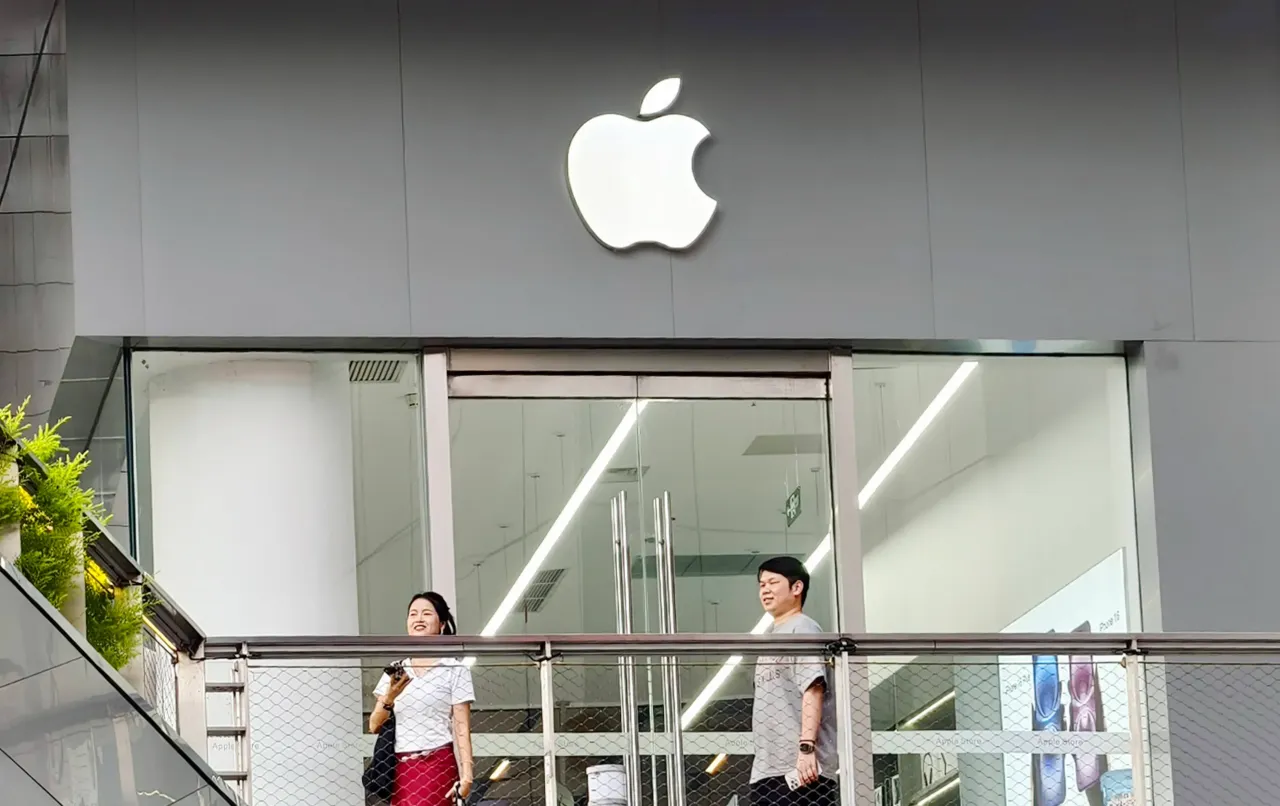Advertisement|Remove ads.
Apple To Close China Store In Rare Exit: What's Behind The Surprise Move?

Apple Inc. (AAPL) is closing a retail store in China, one of its key markets, where it faces multiple headwinds, including U.S. President Donald Trump’s tariff threats.
The Tim Cook-led company said on the website of its Parkland Mall store, named "Apple Centennial City," that it would close at 8 p.m. local time on Aug. 9. “But we’ll still be here for you. Please visit apple.com.cn/retail to find an Apple Store near you,” it added.
The Parkland Mall is located in Dalian City, within the Zhongshan District.
“Given the departure of several retailers at the Parkland Mall, we have made the decision to close our store there,” the company said in a statement, according to Bloomberg. “We’re always focused on providing an exceptional experience for all of our customers, both online and at more than 50 Apple Store locations across Greater China.”
The report stated that this is the first time Apple has ever shuttered a store in China.
The Greater China region, comprising mainland China, Hong Kong, Macau, and Taiwan, contributed $16 billion, or 16.8%, to the company’s topline in the March quarter, although it declined 2.3% year-over-year (YoY). Geographically, it is the third-largest revenue contributor, after the Americas and Europe.
Apple has been the second-worst performer in the “Magnificent Seven” group, largely due to iPhone growth stagnating, with year-to-date losses of over 14%.
On Stockwits, retail sentiment toward Apple stock remained ‘bullish’ (56/100) by late Monday, and the message volume stayed at ‘normal’ levels.

Customers in Dalian city would still have access to another store, located at the Olympia 66 shopping complex, which is 10 minutes away from the Parkland Mall store. The company reportedly said the affected employees would be accommodated elsewhere.
Apple, however, is expanding elsewhere in China. Another Bloomberg report, published in early June, stated that the company planned to open 15 new stores across the Asia-Pacific region, including one at Jing’an Temple Plaza in Shanghai.
The Chinese economy is undergoing a transition period, aiming to shift from production-driven growth to a consumption-led growth model. The red-hot pace of GDP growth seen in the aftermath of the COVID-19 pandemic has cooled off, with retail sales showing an uneven trend.
The Trump tariffs on Chinese exports to the U.S. have further worsened the economic outlook.
The simmering U.S.-China trade tensions are a net negative for Apple, as the Asian country serves as a major production base and a significant consumer market for the tech giant. To mitigate the potential fallout from geopolitical tensions, Apple has relocated some of its assembly to other Asian nations, such as India.
For updates and corrections, email newsroom[at]stocktwits[dot]com.
Read Next: Nvidia, Sarepta, HPE, Citi, EQT: What Sparked Heavy After-Hours Trading In These 5 Stocks?













/filters:format(webp)https://st-everywhere-cms-prod.s3.us-east-1.amazonaws.com/large_moderna_logo_resized_c72083ff97.jpg)
/filters:format(webp)https://news.stocktwits-cdn.com/shivani_photo_jpg_dd6e01afa4.webp)
/filters:format(webp)https://news.stocktwits-cdn.com/large_Getty_Images_2237640344_jpg_bc97a7240c.webp)
/filters:format(webp)https://news.stocktwits-cdn.com/Anushka_Basu_make_me_smile_in_the_picture_b92832aa_af59_4141_aacc_4180d2241ba8_1_2_png_1086e0ed8c.webp)
/filters:format(webp)https://news.stocktwits-cdn.com/Getty_Images_2245685477_jpg_ce08eb96cb.webp)
/filters:format(webp)https://news.stocktwits-cdn.com/Getty_Images_2215875671_jpg_b63edc641f.webp)
/filters:format(webp)https://news.stocktwits-cdn.com/vivekkrishnanphotography_58_jpg_0e45f66a62.webp)
/filters:format(webp)https://news.stocktwits-cdn.com/large_Trending_stock_resized_may_jpg_bc23339ae7.webp)
/filters:format(webp)https://news.stocktwits-cdn.com/large_trump_hassett_jpg_1eb8c227c7.webp)
/filters:format(webp)https://st-everywhere-cms-prod.s3.us-east-1.amazonaws.com/Rounak_Author_Image_7607005b05.png)